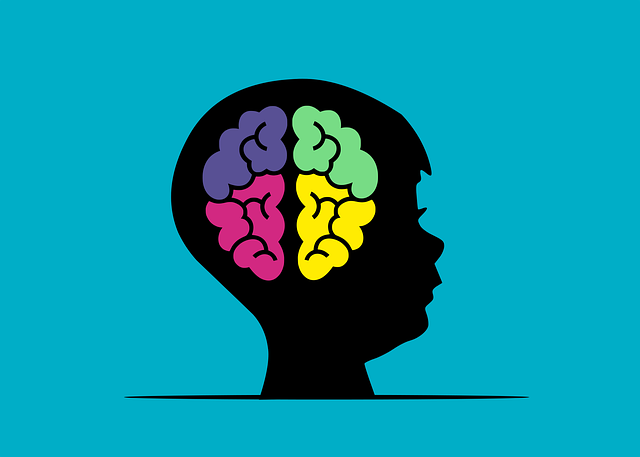In Australia, growing recognition of Adult ADHD (Attention-Deficit/Hyperactivity Disorder) highlights the need for improved support and diagnosis. The Holistic Assessment Approach focuses on individual strengths and challenges beyond traditional symptoms like hyperactivity, addressing executive function issues, mood disorders, and anxiety. Comprehensive evaluations lead to tailored strategies including structured routines, mindfulness, cognitive behavioral therapy, and accommodations to enhance daily life, career, mental health, and relationships for adults with ADHD. Increased accessibility to adult ADHD assessment aims to empower individuals to reach their full potential.
In Australia, adult ADHD (attention-deficit/hyperactivity disorder) is a growing area of focus as its impact on overall wellbeing becomes increasingly recognized. This article explores comprehensive holistic assessment methods for enhancing the quality of life for Australian adults living with ADHD. We delve into understanding the condition’s unique challenges and how a tailored approach, encompassing diagnosis, support, and post-assessment strategies, can significantly improve their well-being. Discover effective paths to empowerment and fulfillment.
- Understanding Adult ADHD: Uncovering the Impact on Wellbeing in Australia
- The Holistic Assessment Approach: A Comprehensive Look at Diagnosis and Support
- Enhancing Quality of Life: Effective Strategies Post-Assessment for Adults with ADHD
Understanding Adult ADHD: Uncovering the Impact on Wellbeing in Australia
In Australia, understanding Adult ADHD (Attention-Deficit/Hyperactivity Disorder) and its impact on wellbeing is a growing area of focus. Many adults in Australia live with undiagnosed or untreated ADHD, which can significantly affect their daily lives, relationships, and overall sense of fulfilment. Symptoms such as difficulty concentrating, impulsivity, and restlessness can manifest in various ways, often impacting career progression, mental health, and personal relationships.
Adult ADHD assessment plays a pivotal role in enhancing wellbeing by providing a comprehensive understanding of an individual’s challenges and strengths. Through detailed evaluations, professionals can uncover the unique ways ADHD influences daily functioning. This enables tailored strategies and interventions to manage symptoms, improve focus, and enhance overall quality of life. By raising awareness and promoting accessible assessments, Australia can better support adults living with ADHD in achieving their full potential.
The Holistic Assessment Approach: A Comprehensive Look at Diagnosis and Support
The Holistic Assessment Approach for Adult ADHD involves a comprehensive, multi-faceted look at an individual’s diagnosis and subsequent support needs. It moves beyond traditional symptoms and medical models to consider the entire person—their physical health, mental well-being, social relationships, and work or study environments. This approach recognizes that Attention Deficit Hyperactivity Disorder (ADHD) can manifest differently in adults compared to children, often presenting as executive function challenges, mood disorders, or anxiety rather than overt hyperactivity.
By taking a holistic view, assessment practitioners can identify a wider range of symptoms and impairments, leading to more accurate diagnoses and personalized support strategies. This method emphasizes the importance of environmental factors and life experiences in managing ADHD, promoting techniques such as structured routines, mindfulness practices, cognitive behavioral therapy, and accommodations at work or school. Such a comprehensive approach ultimately aims to enhance adult well-being by empowering individuals with the tools they need to thrive in their daily lives.
Enhancing Quality of Life: Effective Strategies Post-Assessment for Adults with ADHD
After an comprehensive adult ADHD assessment, individuals can access tailored strategies to enhance their quality of life. The post-assessment phase is pivotal, offering a roadmap for managing symptoms and improving overall well-being. One effective approach involves creating structured routines, which can help manage time effectively and reduce feelings of being overwhelmed. This might include implementing daily planners or digital tools to stay organized, ensuring tasks are broken down into manageable chunks, and setting realistic goals.
Additionally, incorporating mindfulness practices and cognitive-behavioral techniques can significantly benefit adults with ADHD. Mindfulness meditation, for instance, helps individuals focus on the present moment, improving attention span and reducing impulsivity. Cognitive-behavioral therapy (CBT) provides valuable tools to challenge negative thought patterns and behaviors, fostering better emotional regulation and decision-making skills. These strategies, combined with medication or other professional interventions as needed, empower adults with ADHD to navigate their daily lives more skillfully and achieve greater life satisfaction.
In conclusion, a holistic adult adhd assessment is transformative in enhancing the wellbeing of Australians living with ADHD. By employing a comprehensive approach that considers both neurological differences and individual life circumstances, we can provide targeted support to improve quality of life. This includes recognizing the unique challenges faced by adults with ADHD and implementing effective post-assessment strategies tailored to their needs, ultimately fostering greater productivity, confidence, and fulfillment.
